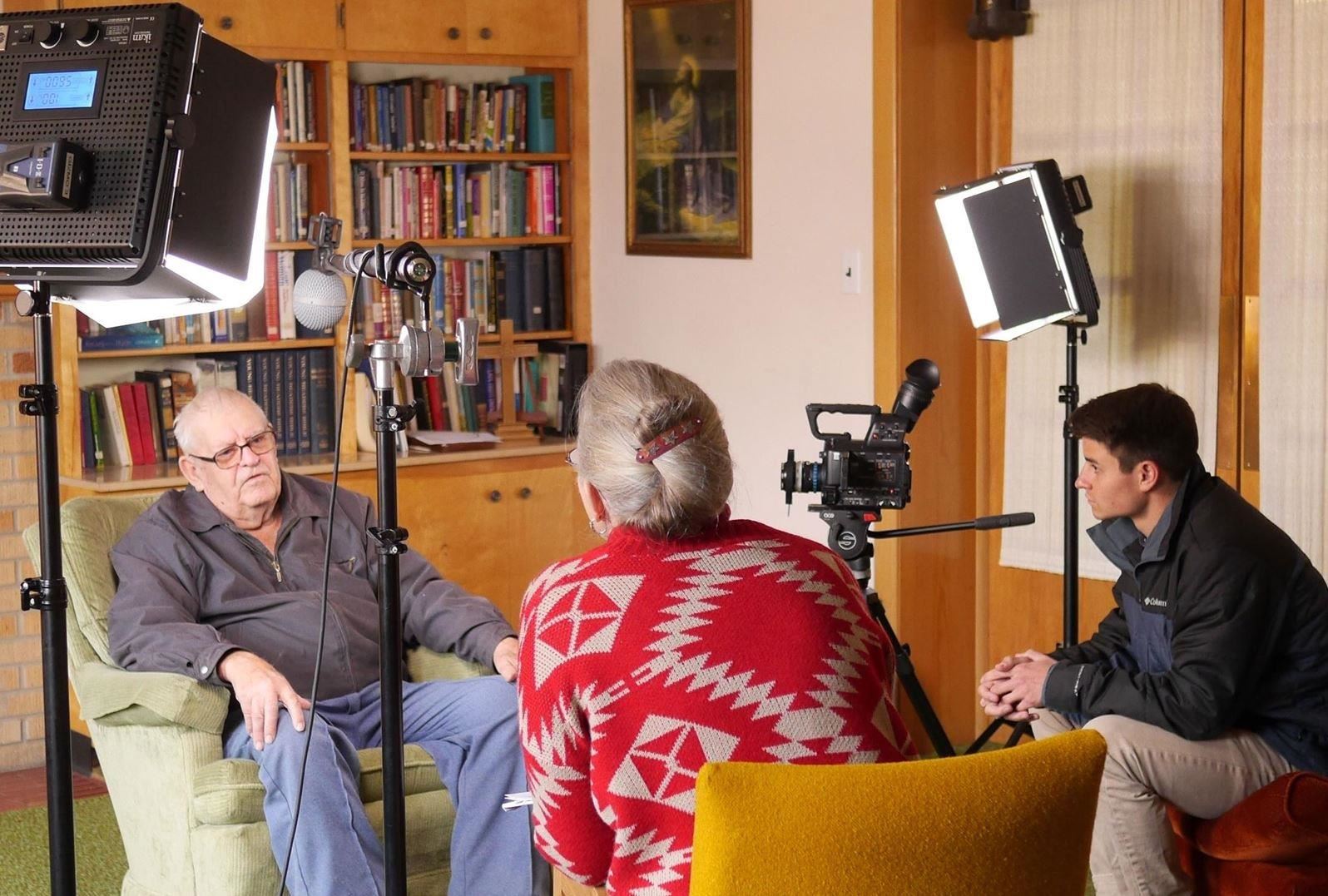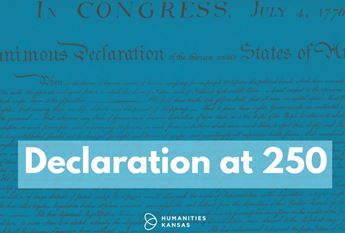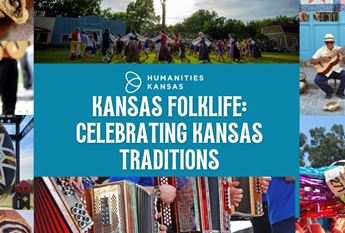

Meet Joan Weaver
What's your Kansas story?
It was my husband who brought me to Kansas. He was a Kansas boy, who after living in many other places, was drawn back to this land. I was a Michigan girl who loved the lakes and woods, but had lived in New Mexico and came to also love the mountains and desert. Then thirty years ago, I found myself in western Kansas with its vast plains and wide sky. We bought a 100 year old farmhouse on 30 acres encompassing one big sand hill with the cultivated prairie stretching out below and the Milky Way spanning endlessly above.
Kansans are like the grass and wildflowers on the prairie. Their beauty and resilience comes from perennial nourishment found deep below the surface. I did not become a Kansan quickly; I’m not sure any outsider can. For me, it took years of caring for my little patch of prairie, of returning my husband to the land, of hearing the stories of the people, and of being upheld by their goodness. That is what has made me a Kansan.
Describe what you do now. What inspires you about what you do?
I am the former library director in Kinsley, Kansas. I conscientiously purchased books, paid the bills, and oversaw the facility. But what I love to do is offer people of all ages opportunities to discover and share experiences and ideas. I am inspired by the stories of the local people, both past and present. I am continually humbled and privileged to hear their stories. As a former librarian, I recognize the need to preserve the stories, but what really inspires me was to share them with a greater community and then witness moments of recognition, consideration, revelation, and appreciation. When people come together at the library to learn and to exchange ideas, it inspires me to go on and create more opportunities. I watched the community rediscovering the determination of the Tractorcade generation. I witnessed new understandings awaken in a room full of people when they listened to a Somali “Lost Boy” tell his story. I saw the wide-open eyes of children as they heard an elderly neighbor describe Black Sunday. Most recently, I have been discovering and sharing the lives of people from 100 years ago through local newspapers articles, letters and diaries written during World War I. We are exploring together how that war affected the soldiers and people of my county, and also recognizing those same effects manifested in more recent conflicts. This is what inspired me to work as a librarian.
Why do you love the humanities?
I love the humanities because they create beauty, promote understanding, and nurture hope for a better world.
What inspires you about Kansas?
The beauty of the prairie, rivers, and skies of Kansas inspires my artistic and spiritual soul. I hear poetry when kayaking down the Arkansas River or watching a skein of geese fly overhead. I see art in double rainbows and when my country road is lined with yellow sunflowers. Music is created by the rustling cottonwood leaves and the rhythmic hoo-ing of the pair of great horned owls atop my elms. I am inspired by the hundreds of monarchs congregating in the cedars on their journey south and by the sun illuminating the iridescent feathers of a pheasant. I am awed by the vast cosmos when I stand in the darkness on my hill.
"The Kansas people inspire me."
Through my late husband’s native heritage, I have been inspired by the Plains Indian culture. I am also inspired by the immigrants that later settled here. The land of western Kansas required and thus created people who had courage, perseverance, and strong faith. They worked hard, and they built strong ties to both the land and each other. That legacy lives on in my friends and neighbors today. I am continually inspired by their life stories, humbly told, but so filled with the legacy of their ancestors. I am inspired by the more recent immigrants who have come seeking an opportunity for a better life. I see the same courage and sacrifice of the early pioneers. I am inspired by the diversity in history, cultures and ideas that make up Kansas. A few examples from my experience are:
- The outsider art of the Garden of Eden and the Wichita Art Museum
- Blue grass festivals and the Symphony in the Flint Hills
- Nicodemus Homecoming, Lindsborg Midsummer Festival, and Dodge City Days
- The Peace Treaty Pow Wow at Medicine Lodge and the Prairie Festival at the Land Institute
- Cavalry forts, prairie cathedrals, and a host of historic homes and small museums
One thing I love about living in western Kansas is the remoteness, but that remoteness can also create a dearth of intellectual stimulation and engagement in ideas. Kansas would not be as inspiring to me if it were not for Humanities Kansas which brings programs and scholars to my town. I have found inspiration in both historical and contemporary themes. Meeting scholars stimulates and challenges me to learn and think about fresh ideas, topics, and viewpoints. These encounters have inspired my own writing and art. HK has inspired me to go deeper and to engage my whole community in discovering Kansas. Just one example is a nine month county-wide study of the Dust Bowl era along with current water issues. What started with a national exhibit grew to be so much more with HK support. We were able to host a four-month discussion series that provided scholars on both the era and on the state of water in Kansas today. I was given funds to record and preserve the stories of local Dust Bowl survivors. We hosted a TALK series that drew a couple dozen farmers who shared their memories. Our activities with HK helped us receive a Kansas Creative Arts Industries Commission award which hosted a concert of Woody Guthrie music for both the community and teacher in-service. It provided a Kansas singer-songwriter artist-in-residency that generated original art and music by our students. I, along with many other people, find inspiration and enrichment from the programs and activities of Humanities Kansas.
Why do stories and fresh thinking matter in Kansas today?
Only humans are capable of telling their stories, and our stories reveal who and what we are. How Kansans go about telling their stories, and how we listen and show respect for others and their stories, will determine the course and future of Kansas. Knowing the collective stories that have brought Kansas to this point can help us envision and create our future story. Stories teach lessons about choices, consequences, failures, successes, mistakes and triumphs. Stories allow us to experience and understand the world through a different pair of eyes. They instruct and illuminate situations that we have not experienced. Seeing something from a different viewpoint brings about fresh ideas which can solve problems by changing behaviors, minds and hearts. Fresh ideas spark curiosity and creativity to meet challenges and build a more understanding and prosperous Kansas. For Kansas to be relevant and grow in a changing democracy, Kansans need fresh thinking to creatively write the next chapter in the Kansas story.
How would you like to see Kansas evolve in the next five years?
- I want Kansas to evolve into a leader in education which includes not only the sciences, math and technology, but also the humanities.
- I would like to see Kansas better support the preservation and cultivation of our history, culture, literature, and the arts.
- I hope that Kansas will strive to protect our environment to enable us to live in a place that is healthy for our bodies and feeds our minds and spirits.
- I would like Kansas to grow economically through noble, healthy, and enriching opportunities.
What do you wish people knew or understood about Kansas?
On late night television, it is easy to make fun of Kansas as a flyover state where people hold extreme and ridiculous views. “Toto, we’re not in Kansas anymore,” is a worn out punch line. To counteract that stereotype, I wish that people knew and understood the Kansas character. The sparse population and rural nature of the state nurtures a unique character. Kansans stand up for values they believe in including freedom and democracy. This state was created in opposition of slavery. Kansans have a strong work ethic; they work hard and expect others to do the same. Kansans cherish individual freedom while, at the same time, they support strong community. They freely serve in local government, volunteer in civic organizations, and support local programs and charities to make their communities good places for everyone to live. Everyone shows up at the Friday night game, the school play, and every church and organization’s fund-raising dinner. Kansans value order and safety. They still respect police and teachers. Kansas children play in their neighborhood without fear. Kansans are conservative because they know that sometimes the rains don’t come and you can lose everything in a few minutes of swirling wind. Kansas is called the heartland because its values come from strong and good hearts. Kansans are generous people who quietly show up at a neighbor‘s door or field to assist in times of trouble. It you have car trouble in Kansas, help is closer than your cell phone; it is in the next pickup truck that comes by.
Are you ready for the lightening round? What is your favorite dessert?
I would always choose pie – any kind. One time I made three pies: rhubarb, banana cream, and apple pie. I couldn’t decide which one to have a piece from, so I ate an only somewhat smaller piece of all three. Pie is like life, I want all its flavors and sweetness.
Would you ever agree to be on a tv or radio game show? If so, which one and why. I would never agree to be on a TV game show. I want to keep my senior moments and plain ignorance known only to my forgiving friends.
Name your top movie picks.
I am very eclectic, love variety, and the new. It is hard for me to pick one over another. Just to be contrary to the choices given, I will instead choose the TV show Northern Exposure. I own all six seasons, and I never get tired of watching the episodes. Nothing tops flinging a piano, the last supper scene, and Marilyn’s native wisdom. I think it is time to reward myself for finishing this endeavor with an episode right now.



